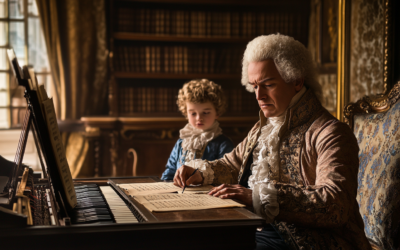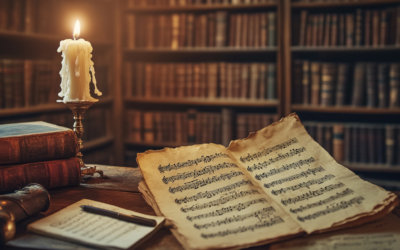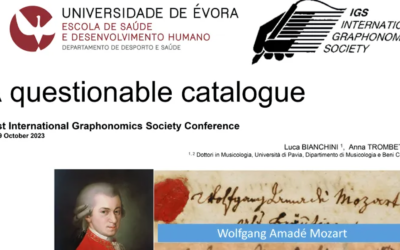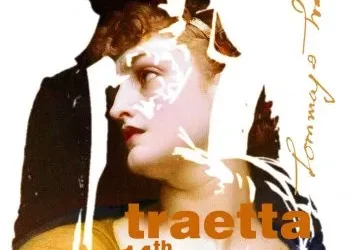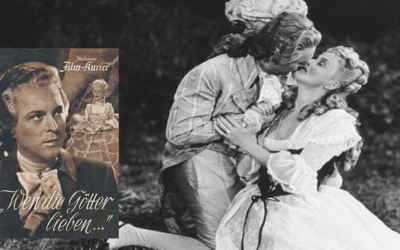A Resounding Success
Luchesi’s Concerto Revived at Milan's Sala Verdi
A standing ovation followed the performance of our revised edition of Luchesi’s Concerto in F for piano and strings at the Sala Verdi in Milan, conducted by Maestro Giorgio Rodolfo Marini and performed by the Insubria Chamber Orchestra.
Mozart: The Fall of the Gods
This book offers a fresh and critical look at the life of Wolfgang Amadeus Mozart, challenging the myths that have surrounded him for centuries. We strip away the romanticised image of the “natural genius” and delve into the contradictions within Mozart’s extensive biographies. Backed by nearly 2,000 meticulously sourced citations, this work invites readers to explore a deeper, more complex understanding of Mozart. Perfect for those who wish to question the traditional narrative, this biography is a must-read for serious music lovers and historians.
"Luchesi’s forgotten masterpiece returned to the stage, proving that some of the finest compositions of the Neoclassical period have yet to be fully appreciated."
@MozartrazoM
Recently, at the iconic Sala Verdi of the Milan Conservatory, a remarkable concert featured our revised version of Andrea Luchesi’s Concerto in F for piano and strings. This revival, alongside works by Donizetti, Costantini, and Perosi, was a resounding success, met with enthusiastic applause from an appreciative audience.
Conducted by Maestro Giorgio Rodolfo Marini, and with Maestro Carlo Levi Minzi as the soloist, the performance by the Insubria Chamber Orchestra brought new life to Luchesi’s forgotten masterpiece. The audience was captivated by the elegance and depth of Luchesi’s composition, which, thanks to our careful transcription and revision, revealed a richness that had been overlooked for too long.
This event not only celebrated Luchesi’s contribution to the world of classical music but also demonstrated how important it is to re-evaluate composers who have been unjustly neglected by history. The applause and standing ovations confirmed that this was a long-overdue recognition of Luchesi’s brilliance.
You May Also Like
K.143: A Recitative and Aria in the Shadows of Doubt
K.143 is a prime example of how Mozart scholarship has turned uncertainty into myth. With no definitive evidence of authorship, date, or purpose, this uninspired recitative and aria in G major likely originated elsewhere. Is it time to admit this is not Mozart’s work at all?
The Enigma of Mozart’s Symphony K.73
The Symphony in C Major K.73 has long puzzled Mozart scholars. Touted as a youthful work of prodigious talent, its origins are murky at best. The title “Symphony,” inscribed on the first page of the autograph, is devoid of the composer’s name, casting immediate doubt on its attribution to Wolfgang Amadeus Mozart. Was this truly his work, or is the Symphony yet another victim of overzealous attribution?
Mozart’s Thematic Catalogue Exposed as a Forgery
A groundbreaking forensic analysis reveals that Mozart’s thematic catalogue, long thought to be his own work, is a posthumous forgery. This discovery, detailed in Mozart: The Construction of a Genius, turns centuries of Mozart scholarship on its head, demanding a re-examination of his legacy.
Bologna Connections
Quirino Gasparini’s rediscovered Mitridate aria takes centre stage in Bern and Basel, shedding light on Mozart’s reliance on this forgotten composer.
International Traetta Award
We are thrilled to announce that the 14th International Traetta Award has been bestowed upon Anna Trombetta and Luca Bianchini. This prestigious recognition honours their outstanding dedication to musicological research on primary sources of the European musical repertoire, offering significant contributions to reshaping the historiography of 18th-century music.
A Legacy Rewritten by the Shadows of History
Mozart’s image, often regarded as a universal symbol of musical genius, was heavily manipulated by the Nazi regime, a fact largely ignored in post-war efforts to “denazify” German culture. From propaganda-driven films to anti-Semitic narratives, Mozart’s legacy is far more complex and troubling than we are often led to believe.


